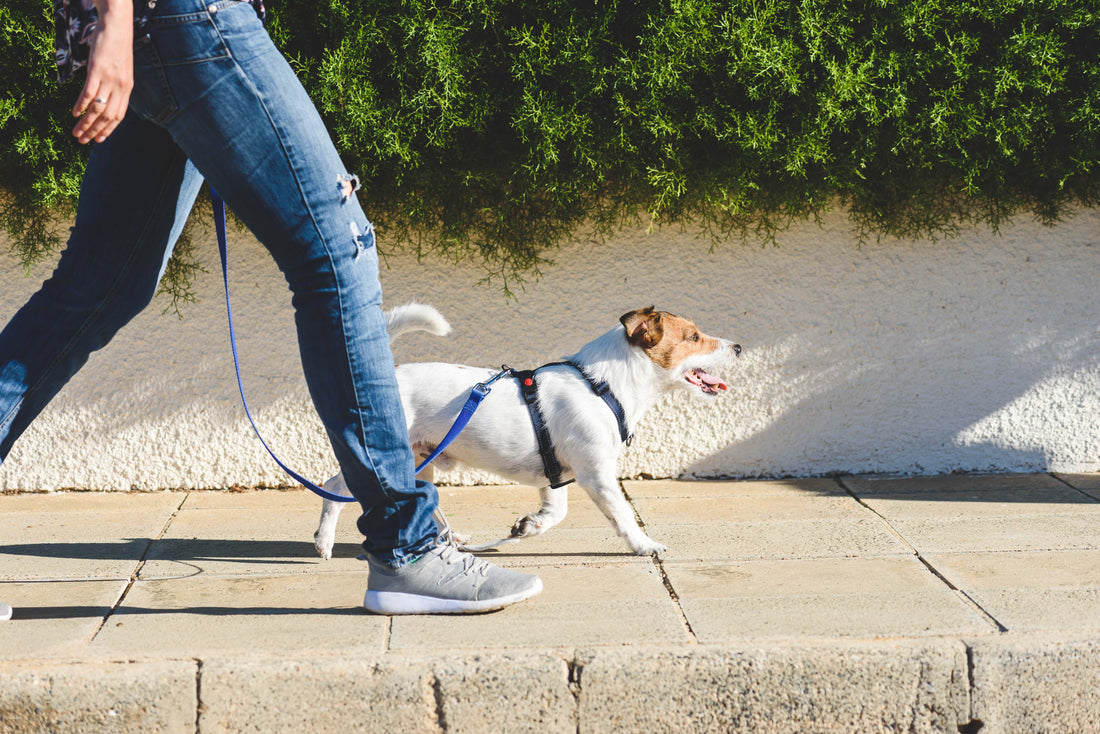Digging is a natural behaviour for many dogs, but it can become problematic when your garden or yard bears the brunt of their enthusiasm. Understanding why dogs dig and implementing effective training techniques can help manage this behaviour. This guide will provide practical tips on redirecting, deterrence, and using positive reinforcement to curb your dog’s digging.
Understanding Why Dogs Dig
Before addressing how to manage digging, it's important to understand why dogs dig in the first place. Common reasons include:
- Boredom: Dogs often dig out of boredom or a lack of mental stimulation.
- Hunting Instincts: Some breeds have a strong prey drive and dig to hunt small animals.
- Comfort: Dogs might dig to create a cool spot to lie in during hot weather.
- Escape: Some dogs dig to escape from a confined area or yard.
- Curiosity: Natural curiosity and exploration can lead dogs to dig.
Redirecting Digging Behaviour
Provide Adequate Exercise
Ensuring your canine companion gets enough physical and mental exercise is crucial in managing digging behaviour. Regular walks, playtime, and interactive toys can help burn off excess energy and reduce the urge to dig.
Create a Digging Zone
Designate a specific area in your yard where your dog is allowed to dig. Encourage them to dig in this area by burying toys or treats. This redirects their digging behaviour to an acceptable location.
Interactive Play
Engage your dog in interactive play to keep them occupied. Toys that challenge their mind, such as puzzle feeders, can keep them entertained and reduce boredom-related digging.
Deterrence Techniques
To protect specific areas from your dog's digging, consider using barriers like garden fencing, chicken wire, or decorative rocks to keep them away. You can also make potential digging spots less appealing by placing unpleasant surfaces such as mulch, gravel, or citrus peels, as many dogs dislike the texture or smell.
Additionally, motion-activated devices like sprinklers can startle your dog when they approach restricted areas, discouraging digging behaviour. Just be sure to choose devices that are safe and won't harm your pet. These strategies can help create a more comfortable environment for both you and your furry friend.
Positive Reinforcement Strategies
Reward Good Behaviour
Positive reinforcement is a powerful tool in managing digging behaviour. Reward your dog with treats, praise, or playtime when they exhibit appropriate behaviour, such as digging in the designated area or refraining from digging altogether.
Consistent Training
Consistency is key in training. Use the same commands and rewards each time your dog follows the rules. Over time, they will learn what is expected and be less likely to dig in unwanted areas.
Training Sessions
Incorporate short, frequent training sessions focusing on commands like “leave it” or “no dig.” Use treats and positive reinforcement to reinforce these commands. Gradually increase the difficulty by practising in different locations and situations.
Managing Environmental Factors
Keeping your dog cool is essential, especially in hot weather. Make sure they have a shaded, comfortable place to rest, along with fresh water and a cooling mat, to reduce the urge to dig cooling holes. Managing pests in your yard is also important, as small animals can trigger your dog's hunting instincts and lead to digging. Use safe, pet-friendly pest control methods to keep these temptations at bay.
Additionally, supervising your dog while they're in the yard allows you to intervene and redirect their behaviour if they start digging in inappropriate areas. This proactive approach helps create a safe and happy environment for your furry friend.
Training Tips for Persistent Diggers
Address Anxiety
Some dogs dig due to anxiety or stress. Identifying and addressing the root cause of their anxiety, whether it’s separation anxiety or loud noises, can help reduce digging behaviour. Consider consulting a vet or a professional dog trainer for assistance.
Enrichment Activities
Provide enrichment activities that challenge your dog's mind and body. These can include agility training, scent work, or advanced obedience training. Keeping your dog mentally stimulated can reduce the urge to dig out of boredom.
Safe Chew Toys
Offer a variety of safe chew toys to satisfy your dog's natural urge to chew and dig. Rotate the toys to keep your dog interested and prevent boredom.
Guide Your Dog to Digging Success with Patience and Care!
Managing digging behaviour in dogs requires patience, consistency, and understanding. By providing adequate exercise, using deterrence techniques, and reinforcing positive behaviour, you can help your dog learn where it is and isn’t appropriate to dig. Remember, every dog is unique, and it may take some trial and error to find the best approach for your furry friend.
At The Healthy Pet Co., we are dedicated to supporting you with expert advice and high-quality products to enhance your pet’s wellbeing. For more training tips and pet care resources, visit our website and explore our wide range of products. Together, we can help your pets live their happiest, healthiest lives.




